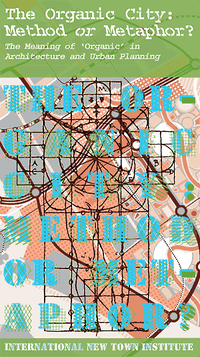
The result of INTI’s 2010 research on the Organic City.
Almere is currently standing at the brink of a major expansion, with its eastern flank (the future district of Oosterwold) having been designated for ‘organic’ development. In this context, the term ‘organic urban development’ would seem to suggest that both the passing of time and the new residents are (f)actors influencing the future design of the district. It is a strategy departing from that of the overarching master plan (‘top-down planning’), allows freedom for private commissioning and constitutes the next step in resident participation. Here, however, it pertains not just to residents’ own parcels of land, but to the layout of the entire district. In the case of Almere Oosterwold, this signifies a gradual transformation from the large-scale, open polder landscape to ‘a small-scale landscape with room for residents, urban agriculture and recreation.’ This expansion, of which the low-density rural lifestyle counterbalances the western flank’s high-rise urban development, has been purposefully left free of pre-determined end results and planning. Construction will take place in stages, according to the needs of the private parties. Within established limits, residents determine the design of their own lots and can choose from a range of ‘street profiles’. They are free to decide on the shape, size and programming of the land to be built on, provided that a ‘buffer zone’ remains around the property that is free of construction. In this way, a city district is manufactured by the residents themselves.


